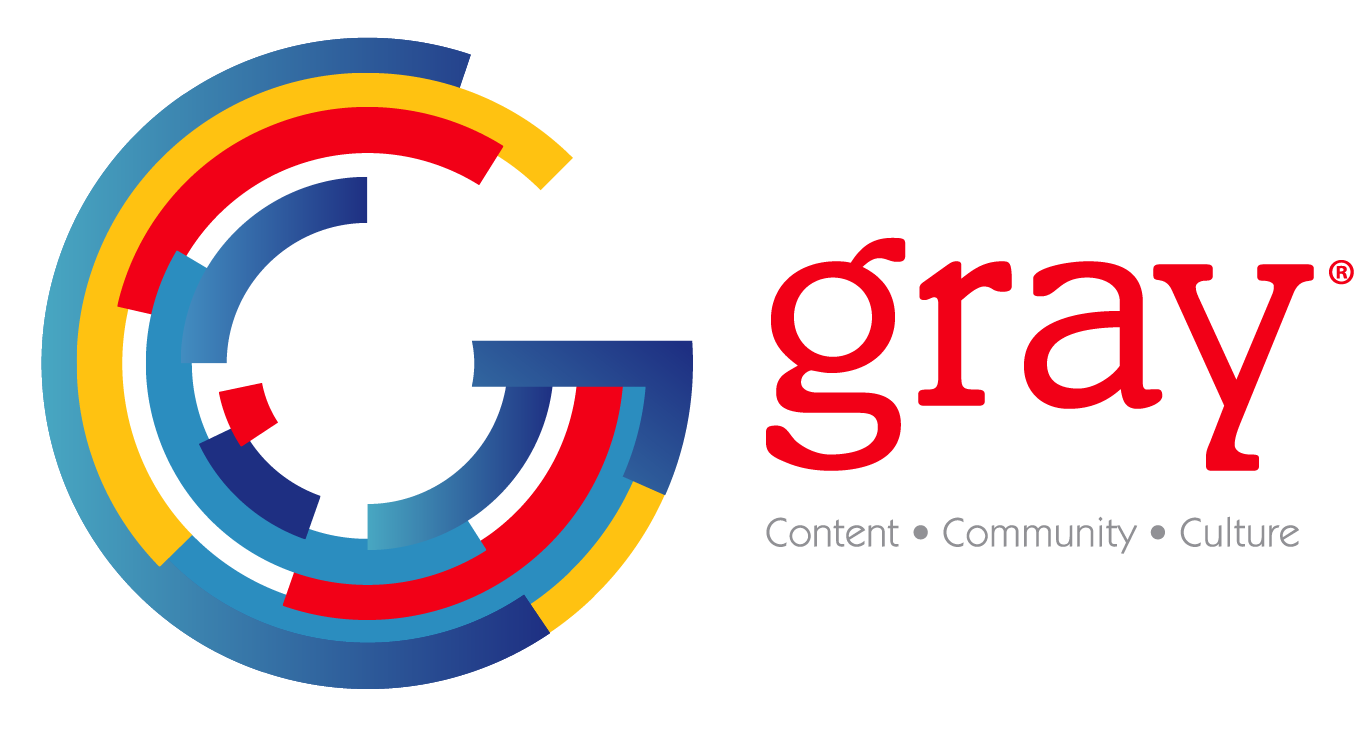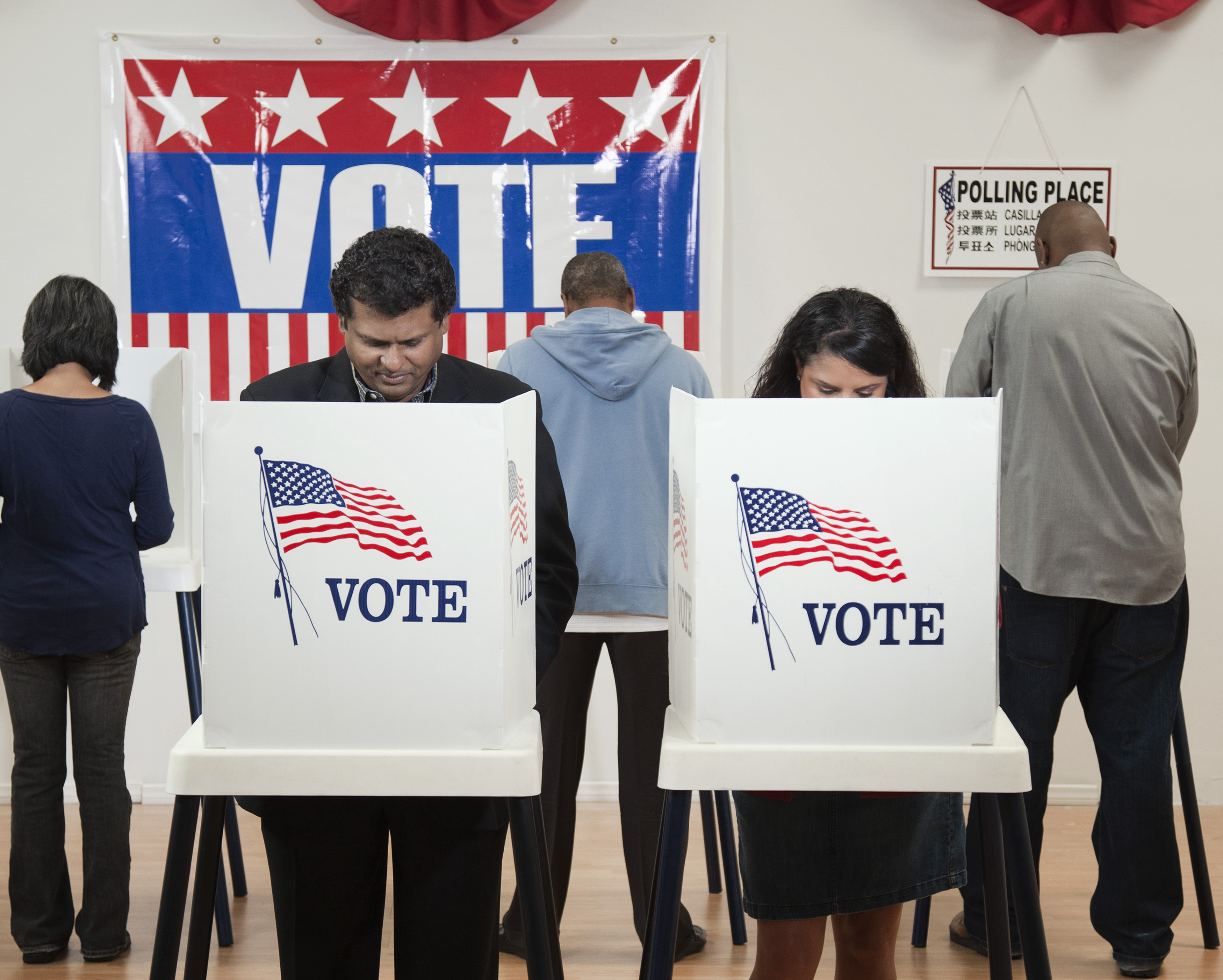
PORTSMOUTH, N.H.—As the U.S. faces what could be the closest presidential election in a generation, the equal split between supporters of the Republican and Democratic nominees is also reflected in the TV shows they prefer.
According to the results of a joint study between Hub Entertainment Research and the Advertising Research Foundation (ARF), the U.S. TV viewing audience is almost equally split between liberals and conservatives. Three in 10 respondents reported themselves as “somewhat” or “very” conservative, while a nearly identical 29% said they were “somewhat” or “very” liberal. The plurality of TV viewers however (41%) say they are “moderate.”
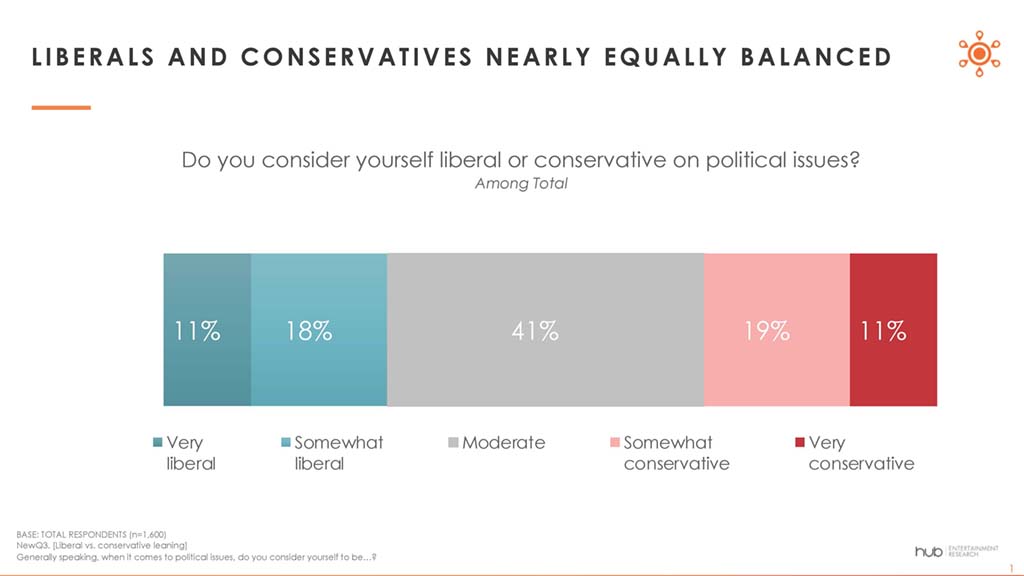
The study included a select list of programs chosen to represent various genres and viewing sources. Among all viewers, the list of most-liked shows was topped by “Friends,” “Saturday Night Live” and “NCIS,” followed by Prime Video newcomer “Fallout.” Only CBS’s “The Late Show With Stephen Colbert” and Netflix’s “Love Is Blind” had likability scores below 50%.
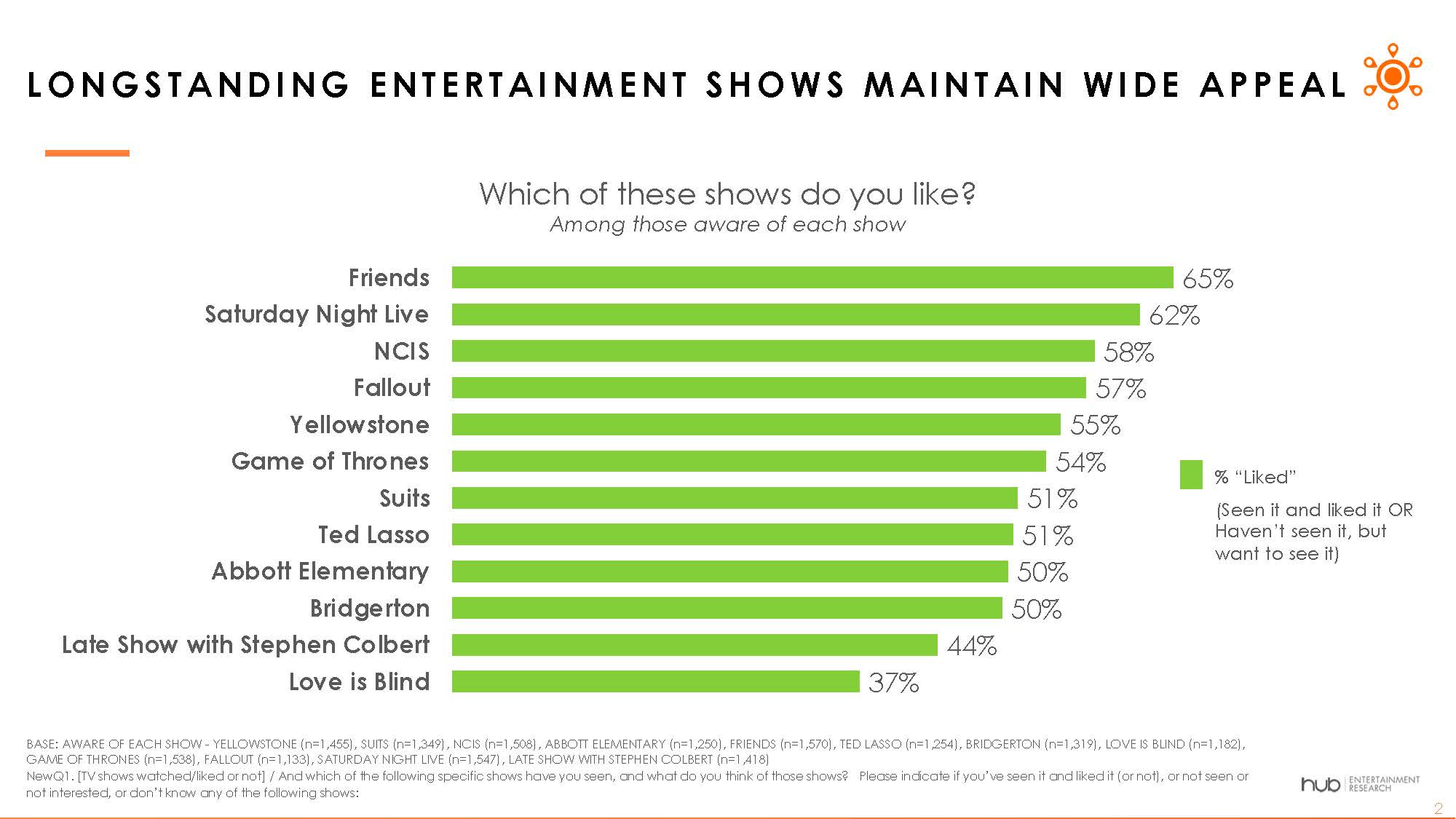
“Friends,” “Fallout,” “NCIS” and “Suits” held equal appeal to viewers on both sides of the ideological spectrum. In directed questioning, many viewers pointed to the strong, relatable characters and the relationship chemistry as the reasons the shows are so likable.
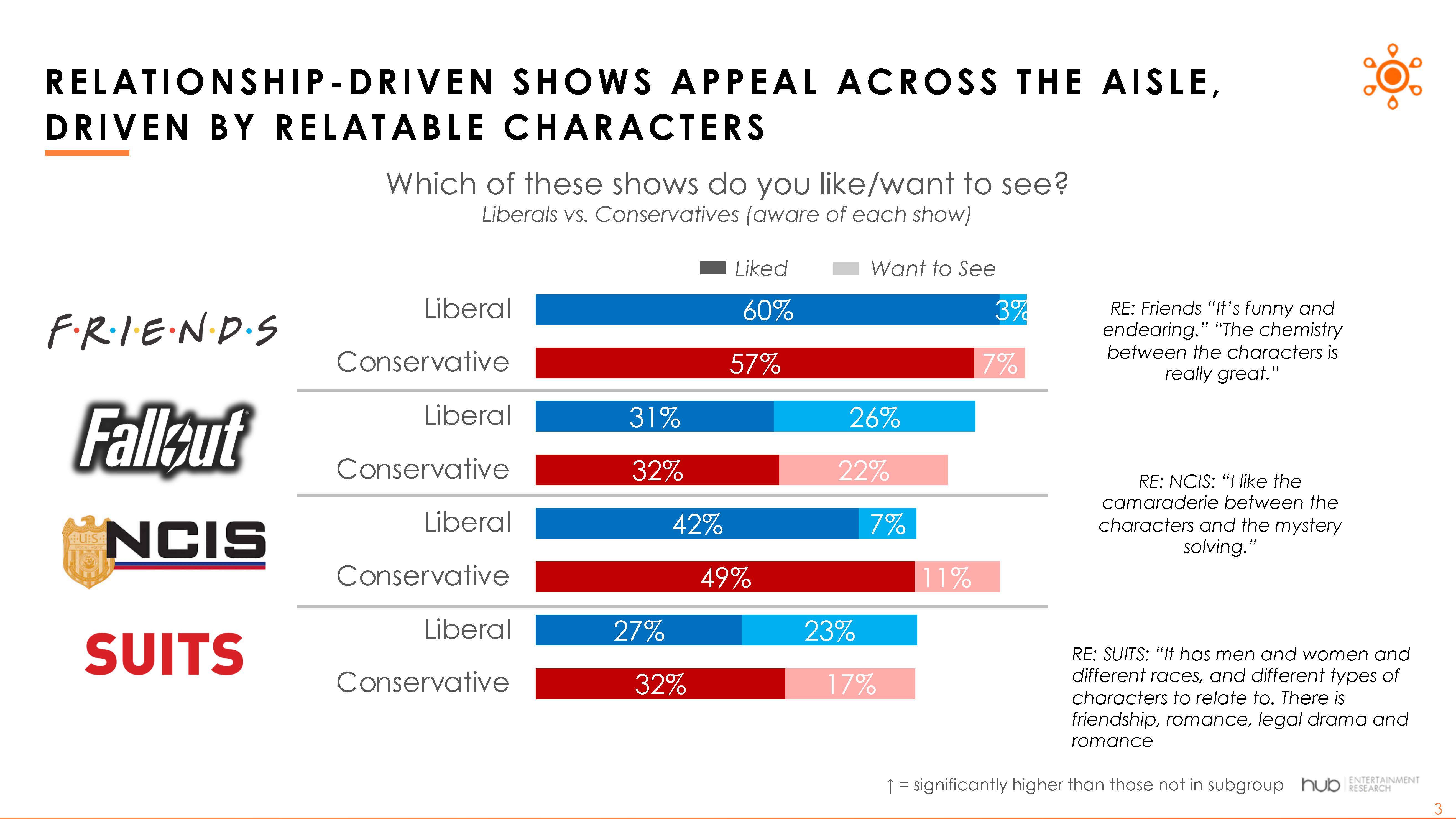
“The Late Show” and “Saturday Night Live,” two shows heavy in political satire that poke fun at officials and candidates, had the most skewed likeability scores, with liberals much more positive than conservatives. Viewers who did not like these shows considered them too slanted and “woke.”
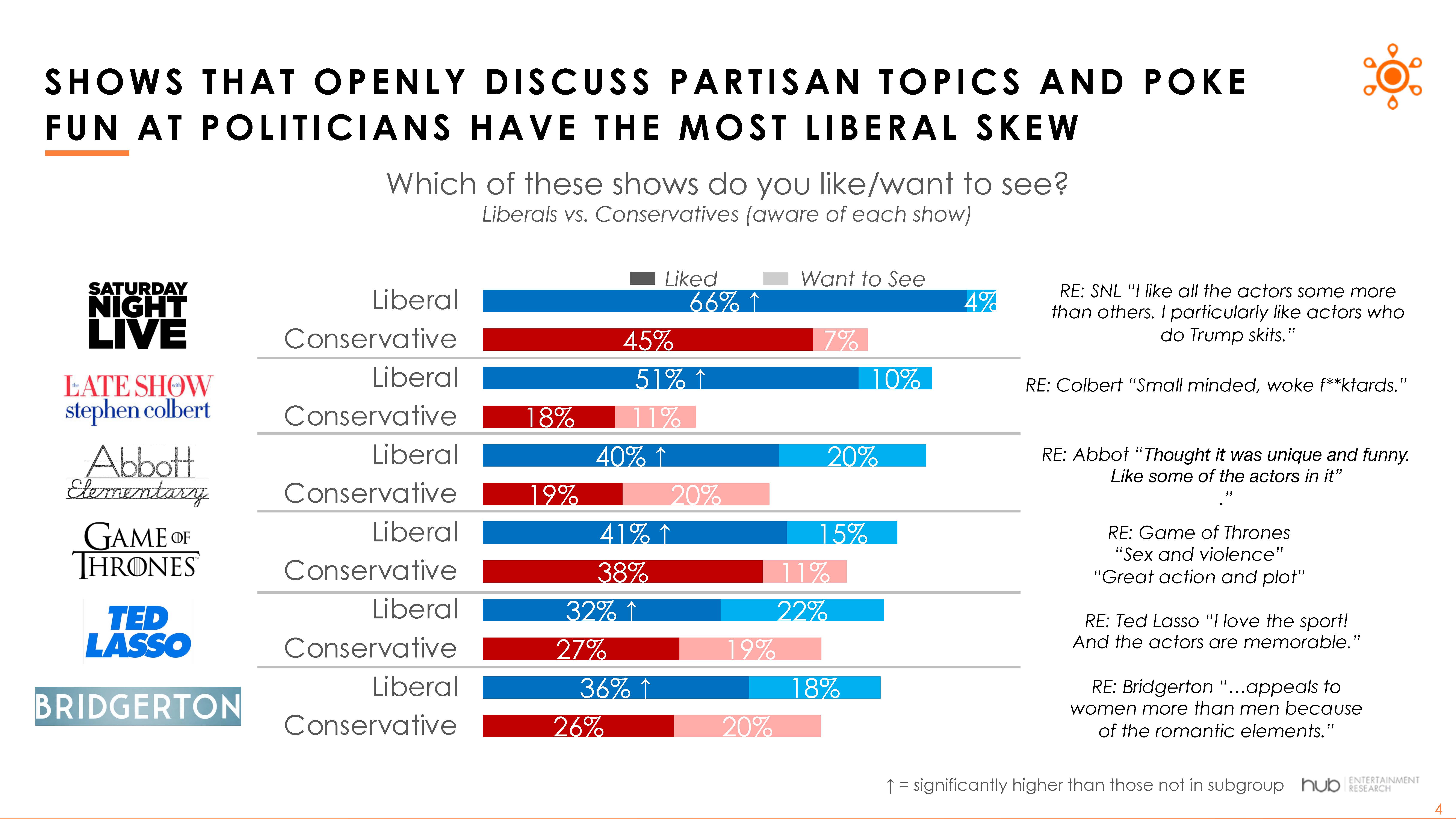
The urban-based ABC public-school comedy “Abbott Elementary” was the other show whose appeal was significantly greater among liberals than conservatives. “Game of Thrones,” “Ted Lasso” and “Bridgerton” had significant but smaller liberal skews on likability.
“Yellowstone” and “Love Is Blind” were the two shows tested that held greater appeal for conservative viewers. “Yellowstone” stood out to respondents for its strong lead character and its family relationships, Hub said.
The professional video industry's #1 source for news, trends and product and tech information. Sign up below.
Of the 12 entertainment shows tested in the study, eight showed partisan skews in likability. Although two of the programs are characterized by political satire, the remaining six had no overt political content.
The study’s results show that the polarization by ideology between viewers on the right and left of the political divide can also extend to entertainment, Hub Research Senior Consultant Mark Loughney said.
“Although several of the most popular TV series hold equal appeal across the political spectrum, these results suggest many entertainment shows have differential appeal for liberals and conservatives,” he said. “Appealing characters and strong relationships form the foundation for popular series among all viewers. But content creators aiming for wide appeal should also consider whether their programs contain implicit biases against viewers on the political right or left. In addition to considering potential demographic skews, creators should also consider the political values of their target audience.”
These findings are from Hub’s 2024 “Decoding The Default” report, based on a survey conducted among 1,600 U.S. consumers age 16-74, who have broadband at home and watch at least 1 hour of TV per week. Interviews were conducted in August 2024 and explored the factors that influence consumers’ choices for their default TV viewing sources, and how they allocate their time across different types of video content. A free excerpt of the findings is available on Hub’s website.
Tom has covered the broadcast technology market for the past 25 years, including three years handling member communications for the National Association of Broadcasters followed by a year as editor of Video Technology News and DTV Business executive newsletters for Phillips Publishing. In 1999 he launched digitalbroadcasting.com for internet B2B portal Verticalnet. He is also a charter member of the CTA's Academy of Digital TV Pioneers. Since 2001, he has been editor-in-chief of TV Tech (www.tvtech.com), the leading source of news and information on broadcast and related media technology and is a frequent contributor and moderator to the brand’s Tech Leadership events.

